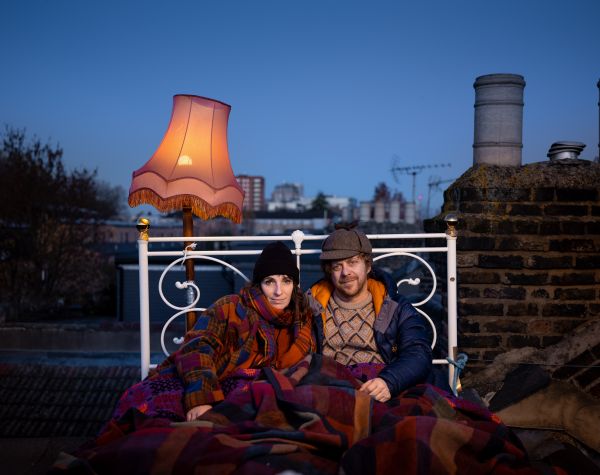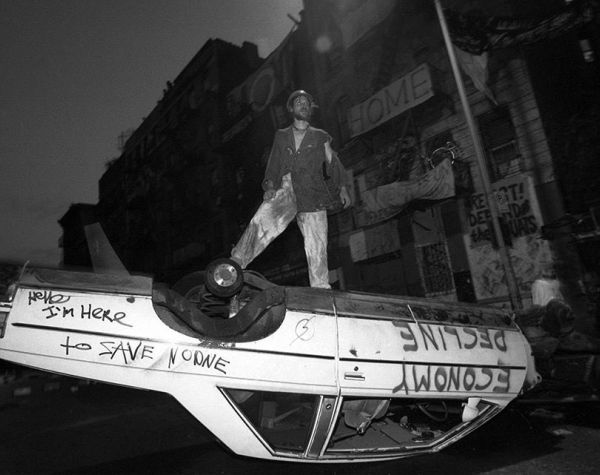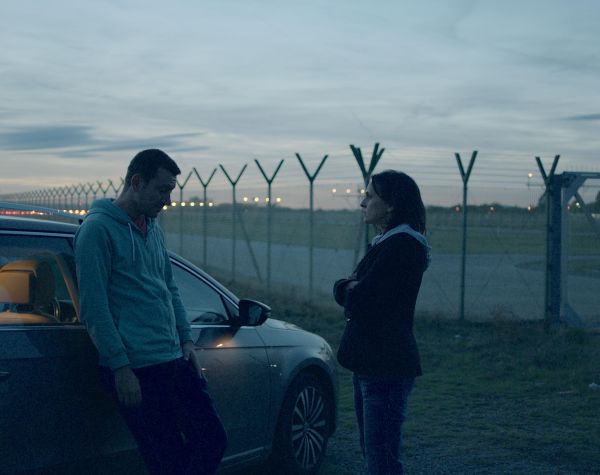activism

I Shall Not Hate: A Gaza Doctor's Journey of the Road to Peace and Human Dignity
In January 2009, viewers witnessed the most dramatic live broadcast in the history of Israeli television. In a phone call from Gaza, Palestinian doctor Izzeldin Abuelaish could be heard crying after the Israeli army had just killed his three daughters in a bombing raid on his home. The father's despair moved history, and immediately after the tragedy was publicized, the Israeli prime minister declared a ceasefire between Israel and Palestine. However, this did not last long, so Abuelaish, known as the Nelson Mandela of the Middle East and nominated five times for the Nobel Peace Prize, set himself the goal of ending the conflict between the two countries. Only then would the deaths of his daughters have meaning, says the doctor, who rejects hatred and treats both Palestinians and Israelis. This straightforward and emotional portrait, whose title refers to Abuelaish's book I Shall Not Hate, shows how to heal an entire society. “We need courageous leaders with moral courage. Risktakers who think of the human goal and future, not of staying in power. Because history will never forget them.” — quote from the movie
director: Tal Barda
original title: I Shall Not Hate: A Gaza Doctor's Journey of the Road to Peace and Human Dignity
country: Canada, France
year: 2024
running time: 92 min.

Power Station
Set during the pandemic and the years that followed, the story follows two protagonists who decide to transform their street into the first community powered exclusively by solar energy. From their home in London's Walthamstow neighbourhood, they develop an idea that combines artistic practice, activism, and everyday life. The project is based on the belief that even small collectives can influence the shape of our world through direct action and concrete deeds. Initially, the aim is to convince neighbours that a shared energy system is a realistic solution to rising prices and dependence on corporations. In times of economic uncertainty, the initiative becomes a symbol of hope and solidarity for an entire neighbourhood that can barely afford to heat its homes. At the same time, the creators continue their tradition of protest art—during the harshest winter in Britain, they spend almost a month on the roof of a house to raise funds and media attention for the campaign. The narrative combines lightness and humour with a deeper message about the power of community, empathy, and imagination to transform a local dream into a universal call for change.“We are trying – through the story telling of one street, all of the different characters and history of this one place – to show, actually we can have the power to make change.” — Hilary PowellSource: BBC News.
director: Dan Edelstyn, Hilary Powell
original title: Power Station
country: United Kingdom
year: 2025
running time: 96 min.

Survival Without Rent
During the 1980s, there were hundreds of abandoned houses in New York that their owners were unable to maintain. They were taken over by squatters, who used their own hands to build homes, but also a utopian community, based on anti-capitalist principles. Archival footage and testimonies map their story, until their forced eviction in the 1990s. “Survival without rent: This is a book to help people take back homes that have been taken away from them by government and business.”
director: Elana Meyers, Katie Heiserman
original title: Survival Without Rent
country: United States
year: 2025
running time: 21 min.

Truth or Dare
An investigation into the functioning of fake news in pre-election Bulgaria reveals the people behind its creation and dissemination, while also highlighting those who are trying to remove it from public discourse. The documentary follows two opposing protagonists. An experienced investigative journalist, with twenty years of experience, whose life has been repeatedly threatened, and whose car has been set on fire twice, has long been highlighting the dangers of disinformation to the Bulgarian public. In contrast to her efforts is a young man entering politics to fight against “gender ideology,” immigrants, vaccinations, and Western influences, who actively buys Russian trolls, and spreads propaganda through social networks. The documentary depicts the absurdity of some of the messages and strategies, but also their concrete impact on election results and the lives of ordinary people. At the same time, it points to the power of far-right internet lobbies and the mechanisms by which they penetrate everyday life. The film explores the contradictions between legal norms and moral values, forcing the audience to confront situations where something is legally permissible, but ethically questionable. “The car of Genka Shikerova, a journalist known for her incisive interviews of Bulgarian politicians, was set on fire outside her Sofia home on the night of 16th September, reviving concern about freedom of information and the safety of journalists in Bulgaria.” — Reporters without Border Source: Interview with Genka Shikerova on media freedom in Bulgaria.
director: Tonislav Hristov
original title: Totuus vai tehtävä
country: Finland, Bulgaria, Sweden, Norway
year: 2025
running time: 84 min.










